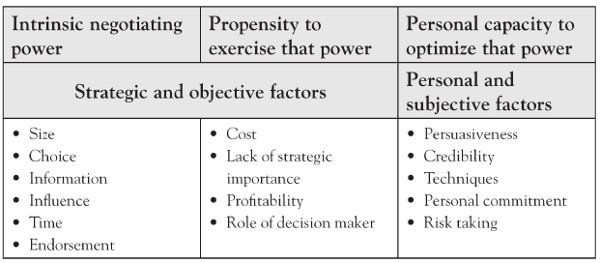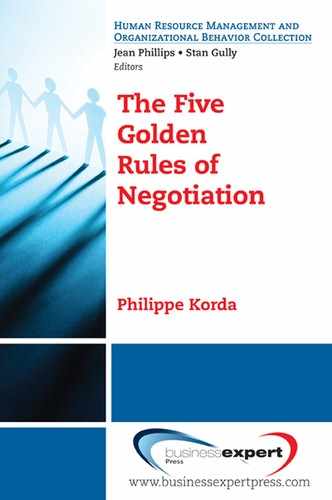A Negotiator’s Personal Ability to Optimize the Effectiveness of His or Her Power
Your intrinsic “power” will be fully effective under the following circumstances.
- A good level of persuasiveness. If you are a seller, you must know how to convince your customer that your proposal is beneficial. But if you are a buyer, during the phase when the selling price and terms are negotiated, you must also be capable of “selling” your deal to the seller and arguing your case so as to win concessions from your counterpart. In all circumstances, your persuasiveness and “charisma” are key qualities.
- High credibility. On a personal level, you need your claims, warnings, confidences, and threats to be taken seriously. Regarding the positions that you adopt, you boost your power if you successfully give your positions high credibility (e.g., if you refer to “general terms” printed in black and white).
- Mastery of negotiating techniques in the purchasing process. Negotiating is a skill.
- A good capacity for risk taking. Some purchasing decisions involve risks (e.g., buying from the lowest bidder, changing supplier, trusting a supplier who is new to the market, etc.). Such decisions can create risks of various kinds for a customer, including unacceptable quality, uncertain reliability, poor after-sales service, delivery delays, and invoicing disputes.
In the case of sellers, the concept of risk is even more obvious, such as when they resist a buyer’s demand knowing that the deal could slip through their fingers at any time and go to a competitor. But if they refuse to take that risk, they condemn themselves to giving in whenever they are under pressure.
The capacity of negotiators (and the organization to which they belong) to take risks greatly increases their negotiating power. Our analysis of a negotiator’s power is summarized in the following table.

..................Content has been hidden....................
You can't read the all page of ebook, please click here login for view all page.
